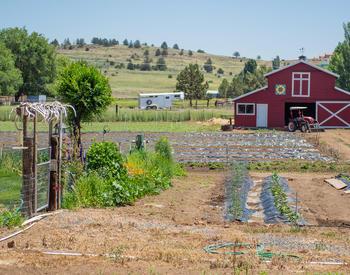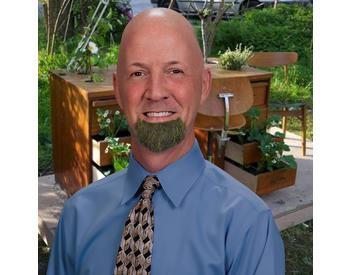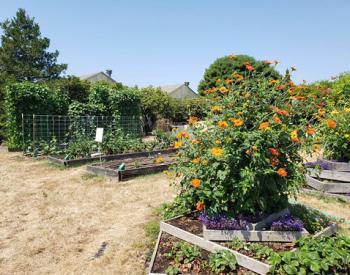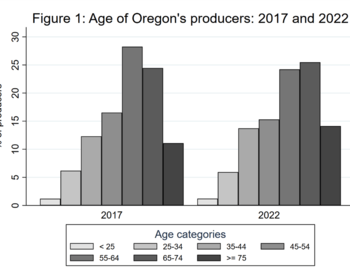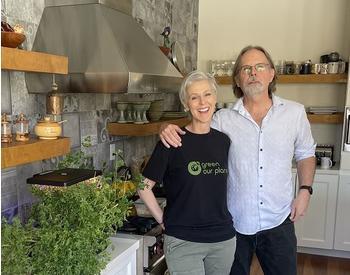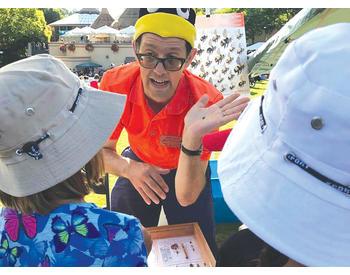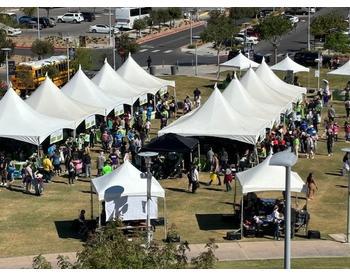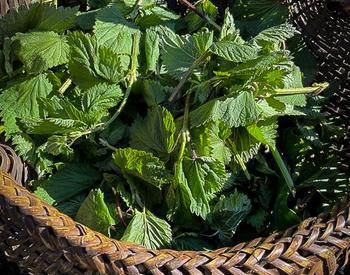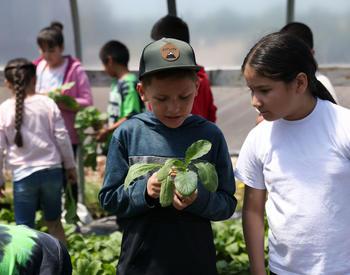TANGENT, Ore. – The timing was just right in January for families to pick up boxes of locally grown food at the Oregon State University Extension office in Linn County.
The sleet and freezing rain that blanketed the Willamette Valley in a sheet of ice had caused many businesses to close for several days, creating lost income for employees. But the ice had thawed by the day that 40 families arrived to receive food procured through a first-of-its kind Extension initiative funded by Linn County Public Health.
Many of the people who showed up weren’t able to work the previous week or go to a grocery store, making the food boxes even more helpful than planned, according to Teagan Moran, OSU Extension Small Farms Program coordinator.
The day was more than picking up food, however. When they arrived at the Extension office just off Highway 34 near Interstate 5, the families were greeted and welcomed inside by Diana Camacho-Figueroa, a nutrition educator who serves Benton and Linn counties in Extension’s Family and Community Health Program.
Once inside, they experienced the savory aromas of Food Hero dishes being prepared in the office’s demonstration kitchen. Food Hero is a statewide initiative of the Oregon Supplemental Nutrition Assistance Program Education (SNAP-Ed) program and was developed by OSU Extension in English and Spanish.
“The recipes were a neat way to show them how they could use what was in their box,” Camacho-Figueroa said.
All of the vegetables, beans, meat and jars of honey and jam were laid out on tables so the families could see what they would be receiving. One woman expressed surprise when she saw purple sweet potatoes. She hadn’t seen purple sweet potatoes in a long time, not since she was in Mexico. She didn’t know they were grown here.
“It was social,” Moran said. “Diana spent a lot of time chatting with each family, and the families connected with one another. The food was beautifully laid out on tables. There was smell and taste.”
‘Amazing opportunity’
The project started in early December, when Extension was awarded a $5,000 local food procurement grant from Linn County Public Health. The microgrants are made to community-based organizations and institutional partners for purchasing and providing local food for free to individuals in Linn County experiencing food insecurity.
“What was unique about this grant opportunity and excited us was that it’s a food system equity-minded approach to food security,” Moran said. “Diana and I are members of a Linn County food systems working group. When we heard about the grant, we thought this would be an amazing opportunity for the Small Farms and Family and Community Health programs to partner on.”
To find local farmers who had food for purchase, Extension’s Crystal Kelso contacted vendors at Corvallis-Albany Farmers Markets who also sell at the Corvallis Indoor Winter Market. Kelso is an education program assistant to the Small Farms and Forestry and Natural Resources programs in Benton and Linn counties.
Some of the farmers Kelso contacted had never connected with the Extension’s Small Farms Program before and didn’t know that Extension had a Family and Community Health Program.
“A couple of the farmers shared with me that this food would have gone to compost, due to slower winter season sales,” Kelso said. “I also had another farmer say that they were glad drop off the storage crops at the Extension office, because their storage options were not as protected from the freezing temperatures that were predicted.”
Kelso was able to purchase from 10 farms – seven in Linn County and three in neighboring counties.
In all, over 1,000 pounds of storage vegetables were used to fill the boxes: beets, purple sweet and white potatoes, onions, garlic and three kinds of squash – Ayote negro, blue kuri and butternut. There were 90 pounds of dried beans and 320 pounds of frozen meat – both chicken and beef. One farmer even donated 40 pounds of beef ribs.
That’s not all. The bounty included 80 jars of local honey and jam and 40 bags of freeze-dried vegetables and fruit. Each box included a food thermometer, an oven mitt, a list of participating farms and how to purchase from them, Food Hero recipes and information on SNAP benefits. All of the written materials were in Spanish.
“We helped to increase farmers’ sales that they might not have had due to the winter season, and it helped make up for the cancellation of the Jan. 13 Indoor Winter Market in Corvallis,” Kelso said.
Kelso also worked with a couple farmers on how to accept credit and debit cards and set-up PayPal, all of which can help them increase their sales.
Food that will be used
While Kelso worked on procuring the food, Camacho-Figueroa spread the word about the program with assistance from the health department. The amount of food boxes was capped at 40 and that number was easily reached, so Camacho-Figueroa had to create a waiting list.
Camacho-Figueroa wasn’t surprised by the demand. Spanish-speaking families whom she works with have said in surveys that they place a high priority on fresh food.
“It was nice to engage with some of the families I’ve worked with – over half the families that got a box have participated in my programming,” Camacho-Figueroa said. “They were really excited about getting a box that had food that they will most likely use. Everything was fresh and local and that’s something these families really value.”
Nearly all of the Extension programs in Linn County worked on the project up to and including pick-up day. Iris Carrera, a nutrition educator, and Itzel Arizemendi, an OSU student who works in Linn County’s Supplemental Nutrition Assistance Program Education (SNAP-Ed) unit, prepped and cooked the Food Hero dishes. Jody Hill with 4-H Youth Development helped Kelso separate and bag the beans and fold boxes. Laurie Gibson, an office specialist for agriculture and home horticulture, designed and printed labels for the bags of beans.
Moran said the core project team will evaluate the program through follow-up surveys and phone calls with the families and farmers. Based on those results, Extension might apply again to the local food procurement grant program, especially during a different harvest season.
“I can’t stress enough the benefits of providing local food to local families and providing income to local farmers,” Moran said, “and the benefits of our partnership with the health department.”
